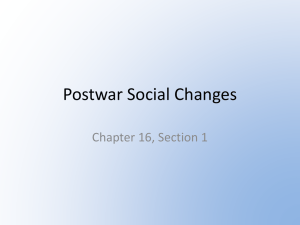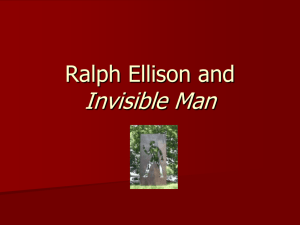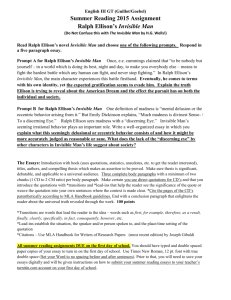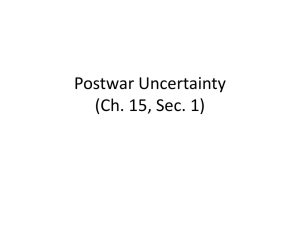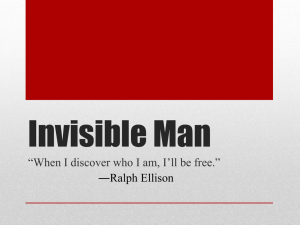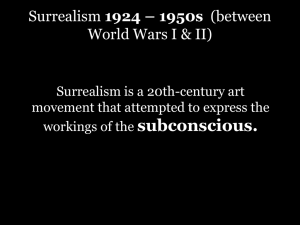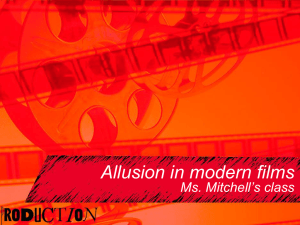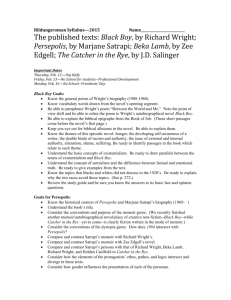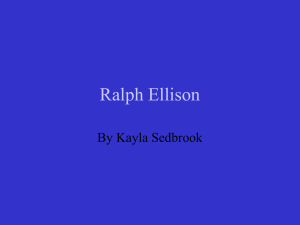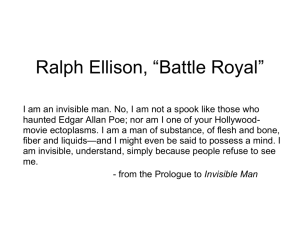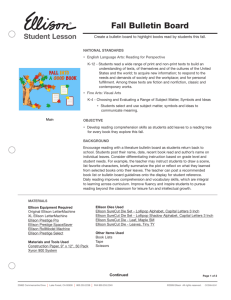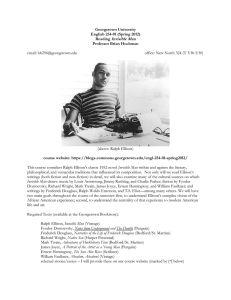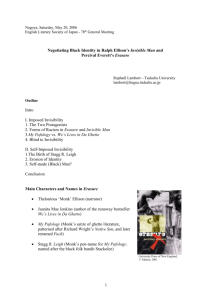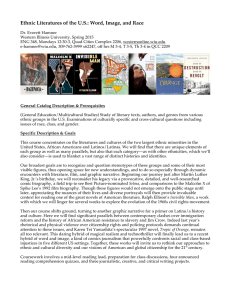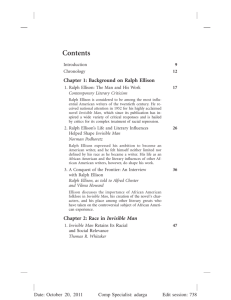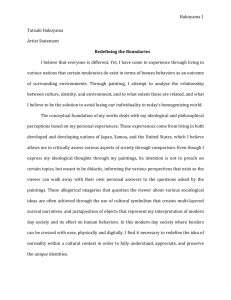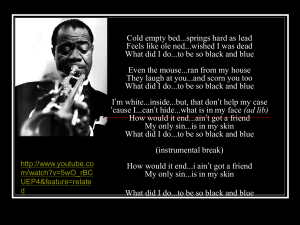Handout_Exist_Sur-realism
advertisement
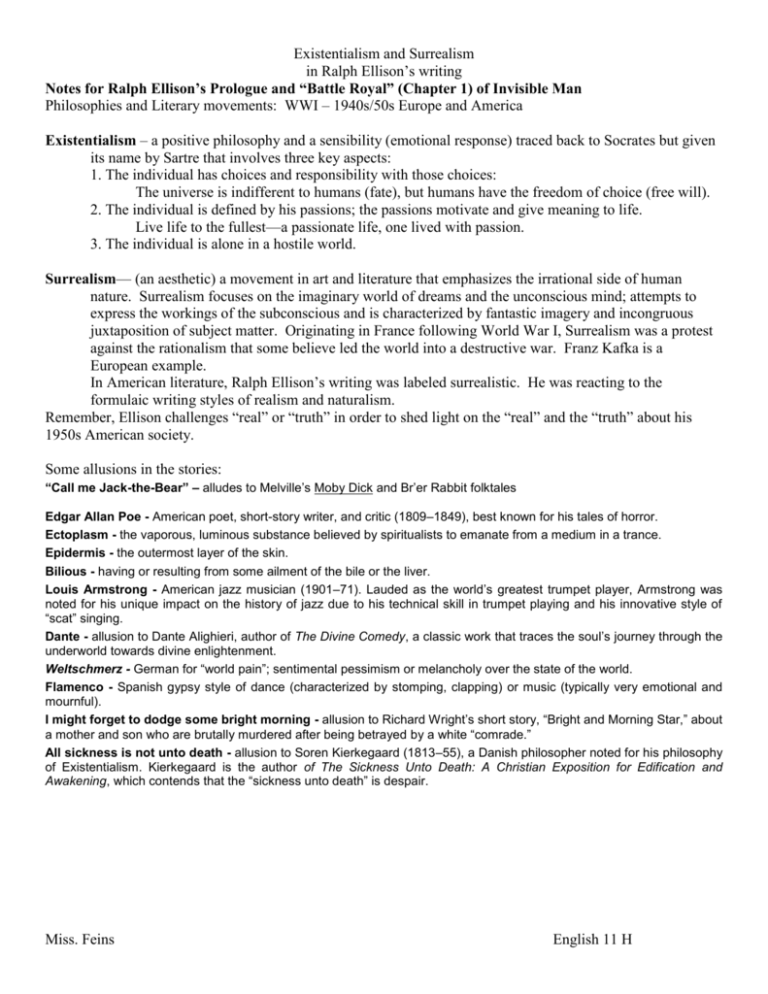
Existentialism and Surrealism in Ralph Ellison’s writing Notes for Ralph Ellison’s Prologue and “Battle Royal” (Chapter 1) of Invisible Man Philosophies and Literary movements: WWI – 1940s/50s Europe and America Existentialism – a positive philosophy and a sensibility (emotional response) traced back to Socrates but given its name by Sartre that involves three key aspects: 1. The individual has choices and responsibility with those choices: The universe is indifferent to humans (fate), but humans have the freedom of choice (free will). 2. The individual is defined by his passions; the passions motivate and give meaning to life. Live life to the fullest—a passionate life, one lived with passion. 3. The individual is alone in a hostile world. Surrealism— (an aesthetic) a movement in art and literature that emphasizes the irrational side of human nature. Surrealism focuses on the imaginary world of dreams and the unconscious mind; attempts to express the workings of the subconscious and is characterized by fantastic imagery and incongruous juxtaposition of subject matter. Originating in France following World War I, Surrealism was a protest against the rationalism that some believe led the world into a destructive war. Franz Kafka is a European example. In American literature, Ralph Ellison’s writing was labeled surrealistic. He was reacting to the formulaic writing styles of realism and naturalism. Remember, Ellison challenges “real” or “truth” in order to shed light on the “real” and the “truth” about his 1950s American society. Some allusions in the stories: “Call me Jack-the-Bear” – alludes to Melville’s Moby Dick and Br’er Rabbit folktales Edgar Allan Poe - American poet, short-story writer, and critic (1809–1849), best known for his tales of horror. Ectoplasm - the vaporous, luminous substance believed by spiritualists to emanate from a medium in a trance. Epidermis - the outermost layer of the skin. Bilious - having or resulting from some ailment of the bile or the liver. Louis Armstrong - American jazz musician (1901–71). Lauded as the world’s greatest trumpet player, Armstrong was noted for his unique impact on the history of jazz due to his technical skill in trumpet playing and his innovative style of “scat” singing. Dante - allusion to Dante Alighieri, author of The Divine Comedy, a classic work that traces the soul’s journey through the underworld towards divine enlightenment. Weltschmerz - German for “world pain”; sentimental pessimism or melancholy over the state of the world. Flamenco - Spanish gypsy style of dance (characterized by stomping, clapping) or music (typically very emotional and mournful). I might forget to dodge some bright morning - allusion to Richard Wright’s short story, “Bright and Morning Star,” about a mother and son who are brutally murdered after being betrayed by a white “comrade.” All sickness is not unto death - allusion to Soren Kierkegaard (1813–55), a Danish philosopher noted for his philosophy of Existentialism. Kierkegaard is the author of The Sickness Unto Death: A Christian Exposition for Edification and Awakening, which contends that the “sickness unto death” is despair. Miss. Feins English 11 H
